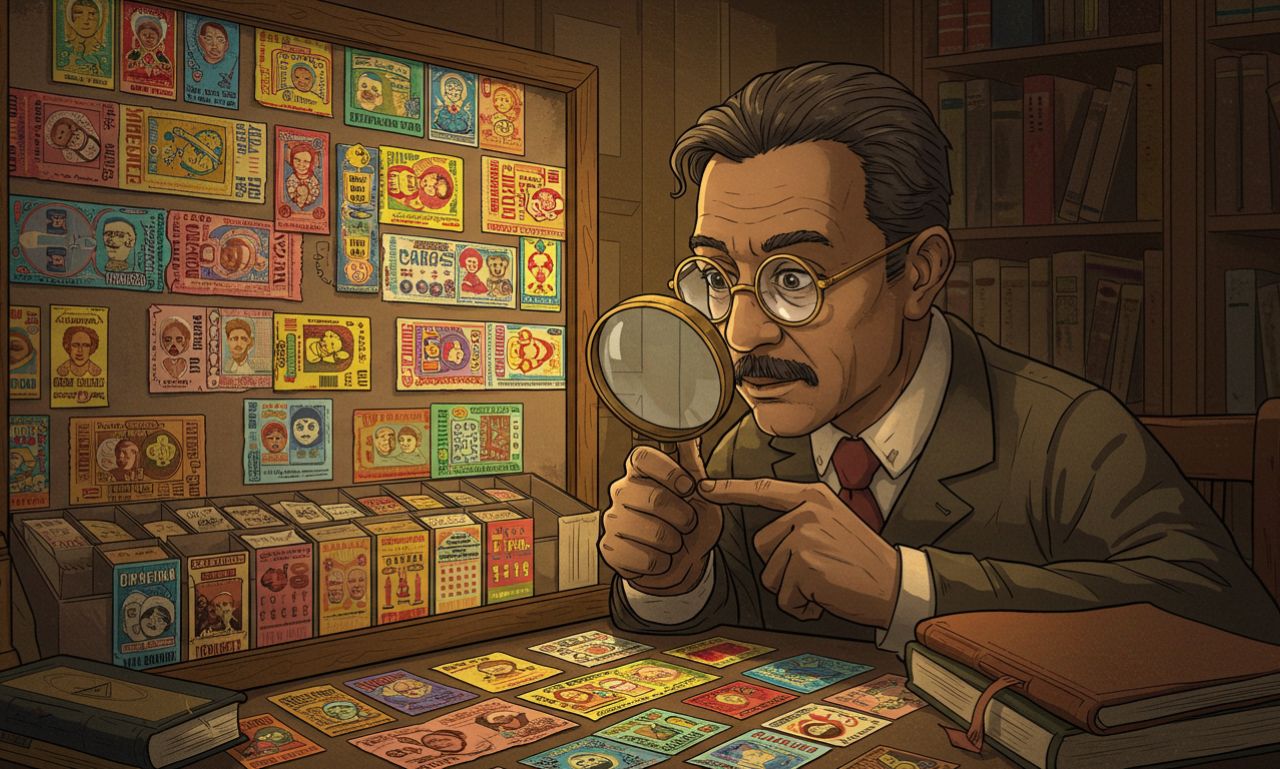Lotology, the study and collection of lottery tickets, is an unusual yet captivating hobby that has gained momentum across the globe. More than simple scraps of paper, lottery tickets hold stories of hope, chance, and culture. For collectors, lotology is more than just saving old tickets; it is about preserving history, documenting design changes, and celebrating a unique cultural phenomenon.
The Origins of Lotology
The origins of lotology can be traced back to the earliest lottery systems. Governments and organizations issued lottery tickets centuries ago to raise funds for public works, charity, or entertainment. Early collectors realized that these tickets, with their unique designs and numbering, represented moments in history.
By the mid-20th century, as modern lotteries became mainstream, ticket collecting found its niche. Enthusiasts noticed variations in artwork, paper quality, and typography. Today, vintage lottery tickets from the 1800s are sought-after collectibles, sometimes fetching impressive prices at auctions.
Why Lotology Attracts Collectors
Collectors are drawn to lotology for several reasons. Some find it nostalgic, recalling family traditions of playing the lottery. Others enjoy the visual artistry in ticket design, from bright scratch-offs to limited-edition runs. Many see it as a way to capture fleeting cultural moments since lottery themes often reflect current events, holidays, or pop culture.
Additionally, lotology offers the thrill of rarity. Much like coin or stamp collecting, enthusiasts seek tickets with misprints, discontinued runs, or historical significance. The hunt for unique pieces keeps collectors engaged and passionate.
Types of Lottery Tickets in Lotology
Lotology encompasses many forms of lottery tickets, each with its own appeal:
-
Scratch-off tickets: Known for their colorful designs, they often feature themes from sports to movies.
-
Draw tickets: These tickets record number selections and are linked to specific draw dates, making them historical markers.
-
Commemorative tickets: Issued for anniversaries or national events, these tickets are limited and collectible.
-
Error tickets: Misprints or mistakes make certain tickets rare and highly desirable among lotologists.
Each category offers collectors a different way to explore and expand their collections.
Lotology and Cultural History
Lottery tickets often serve as cultural snapshots. A scratch-off featuring a popular movie reflects the entertainment industry at that moment. Commemorative tickets mark national holidays or sports events. In this way, lotology allows enthusiasts to trace cultural trends through small pieces of printed paper.
For instance, collectors who specialize in tickets from a specific decade can chart design evolution, marketing strategies, and even printing technologies. A 1970s ticket may use different paper and inks compared to a 2000s scratch-off, providing insight into technological advances.
The Community of Lotologists
Lotology may not be as widely recognized as stamp or coin collecting, but its community is passionate and growing. Online forums, collector groups, and social media pages connect enthusiasts worldwide. Here, collectors trade tickets, share research, and discuss market trends.
Special exhibitions occasionally highlight lottery tickets as cultural artifacts, giving lotology more visibility. Dedicated clubs and niche magazines provide resources for those interested in deepening their collections.
Challenges in Lotology
Despite its appeal, lotology faces challenges. Preserving tickets is difficult since they are made of paper and prone to fading, tearing, or deterioration. Proper storage in protective sleeves or archival albums is essential.
Another challenge lies in verifying authenticity. With some tickets commanding high values, counterfeit pieces occasionally surface. Collectors often rely on trusted dealers and communities to confirm legitimacy.
Loto-logy as a Modern Hobby
In recent years, lotology has benefited from digital platforms. Online auction sites and collector marketplaces make it easier for enthusiasts to buy, sell, and showcase their tickets. Social media groups allow real-time discussions and the sharing of rare finds.
The hobby has also gained attention due to its unique angle. While many collectibles are centuries old, lottery tickets reflect contemporary history and design. Younger collectors are drawn to the affordability and accessibility of starting a lotology collection compared to more expensive hobbies.
Investing in Loto-logy
While most collectors enjoy lotology for passion, some see it as an investment. Rare vintage tickets, especially from discontinued lotteries, can appreciate significantly in value. Error tickets are particularly prized for their rarity.
However, experts caution against viewing lotology purely as an investment strategy. The true value lies in personal enjoyment and cultural preservation. A balanced approach allows collectors to appreciate the hobby while occasionally benefiting from rising ticket values.
The Future of Lotology
As lotteries continue to evolve, so does lotology. With digital and online lottery platforms gaining popularity, the nature of collectible tickets may shift. Physical tickets may become rarer, making existing collections even more valuable.
Collectors are also beginning to document their collections digitally, preserving scans and photographs for future generations. Museums and archives may one day recognize lottery tickets as significant cultural items, further cementing lotology’s place in the world of collectibles.
Getting Started with Lotology
For beginners, starting a lotology collection is simple. Saving tickets from local lotteries provides a foundation. From there, collectors can seek specific themes, decades, or countries.
Key steps include:
-
Using archival sleeves to protect tickets.
-
Researching ticket origins for historical context.
-
Joining online collector groups to learn from others.
-
Attending auctions or trade fairs to discover rare items.
Lotology offers flexibility; collectors can focus on design, history, or rarity depending on their interests.
Conclusion
Lotology may not be the most mainstream hobby, but it is rich in culture, history, and artistry. From vintage draw tickets to colorful scratch-offs, every piece tells a story. Enthusiasts find joy in preserving these small, hopeful slips of paper, connecting them to moments of history and human aspiration.
As technology changes how lotteries operate, the appeal of tangible tickets may only increase. For collectors, lotology is more than just a pastime—it is a way to preserve culture, document design, and celebrate the human fascination with chance.

